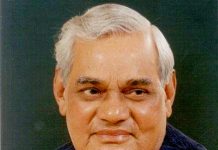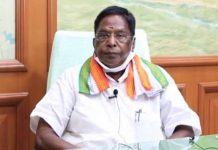 At a party this weekend, concerned that he had offended my Chandigarh-born-and-bred sensibilities by dismissing Le Corbusier’s architecture as brutalist, a friend qualified his statement by saying that brutalism is great when done well. The same, as two films released this week show, can be said about paint-by-numbers comedy. Jolly LLB and The Incredible Burt Wonderstone are by no means the most original films. The former is an everyman-takes-down-arrogant-Big-Kahuna courtroom comedy, while the latter is a redemption tale of an arrogant Big Kahuna who loses it all and gets it back, a “Will Ferrell sports comedy without Will Ferrell and without the sports”, as Ebert puts it. But they both work, much more so than one would expect.
At a party this weekend, concerned that he had offended my Chandigarh-born-and-bred sensibilities by dismissing Le Corbusier’s architecture as brutalist, a friend qualified his statement by saying that brutalism is great when done well. The same, as two films released this week show, can be said about paint-by-numbers comedy. Jolly LLB and The Incredible Burt Wonderstone are by no means the most original films. The former is an everyman-takes-down-arrogant-Big-Kahuna courtroom comedy, while the latter is a redemption tale of an arrogant Big Kahuna who loses it all and gets it back, a “Will Ferrell sports comedy without Will Ferrell and without the sports”, as Ebert puts it. But they both work, much more so than one would expect.
To a large extent, the reason behind the films’ success is the impeccable casting. Arshad Warsi and Boman Irani own the genre Jolly LLB inhabits, having perfected the dynamic it requires in the two Munnabhai films. But the standout performances are the supporting cast, with Saurabh Shukla particularly masterful as the face of the lower judiciary: corpulent, mildly corrupt, appropriately obsequious to the eminent lawyer gracing his courtroom, frustrated by the incompetence that surrounds him, yet mindful of the power and responsibility of being a judge. The intelligent matching of actors to roles means that the film is peopled by eccentric characters rather than characters with infused eccentricities, a lesson Bollywood would do well to learn (Even Sanjay Mishra, whose elevation to a central role has been the bane of many a comedy, is restricted to presiding over a surreal auction for police postings to hilarious results).
Wonderstone, on the other hand, relies on the more typically Hollywood method of getting the best in the business, with Steve Carell, Steve Buscemi and Jim Carrey taking the roles they are given to their zaniest bests. Carell is a better Will Ferrell than Will Ferrell, more loveable, which is essential to ensure the rakishness serves to endear rather than alienate, which, in turn, is essential to American mainstream comedy. Buscemi’s genius at emanating oddness fits him right in as a maladjusted magician whose partner and childhood friend has been blinded by the trappings of fame. Carrey, however, overdoes his role as the street magician Steve Gray, Brain Rapist.

The difference between the two films stems from the cultures they come from. Both belong to the most successful comedy genres in their respective industries. While Bollywood thrives on the everyday Indian stories of David standing up to Goliath, Wonderstone is the familiar tale of the dark side of the American dream, how the excesses of power corrupt the best people. Jolly LLB is full of biting satire; the social commentary is necessary in a country where there is much humour to be drawn from the functioning of institutions, much more than the eccentricities of people that Hollywood comedies embrace. Director Subhash Kapoor’s satirical chops were earned in his critically acclaimed Phas Gaye Re Obama, and while it certainly is no Yes Minister, Jolly LLB finds much hilarity in the system and surroundings of the judiciary.
Call it the Community syndrome if you will, but with the spate of mainstream comedies in Hollywood, it seems that a wink-nudge genre awareness is the only way to make a funny movie today. Silver Linings Playbook, for instance, seemed much better than it was because it stretched the romcom genre somewhat.Wonderstone, in its conflict between established stage magicians and the envelope-pushing Chris Angel parody, has parallels to this larger question. Card tricks make more wholesome entertainment than drilling a hole in your head, and good physical comedy can often say much more than snarky films that rely on clever juggling of form. As long as it’s done well, of course.
Mere Dad Ki Maruti, the third comedy released this week, is another fairly formulaic film that serves its purpose of making audiences laugh, if little else. The Maintain the Lie trope it uses is again a common one in both Hindi and Punjabi comedy: a son loses his father’s car, and then has to go to the ends of the earth to get it back before dad finds out. It helps that debutant director Ashima Chibber brings a refreshing vision to the film, and, while never allowing the madcap pursuit of the titular Maruti to get out of hand, finds great observational comedy about the world the characters inhabit.

The film is entirely set in Chandigarh (the climactic chase sequence ends down the road from the house I grew up in, with kids cycling in the background in the parking lot I learnt to ride a bicycle in), and is perhaps the first film to explore the unique culture of the city. The relatively brief history of Chandigarh means that there isn’t much by way of enduring personality that often makes cities like Mumbai and Delhi an additional character in films, but its emergence in recent years as a playground of rich, rudderless kids spending their Odyssey years consumed by the minutiae of their social lives. Saqib Saleem plays the protagonist Sameer with the same vacuous stare that is a constant among members of this generation, and his rather limited set of hobbies (locking and popping, driving down the city’s famous geri route in a swanky car, preferably with a female sitting alongside) are those of the majority of kids I grew up with, many of whom rather proudly admitted that they had never read a book that wasn’t part of a syllabus.
Chibber also cleverly comments on the consumerism of a city whose closest attempt at a community festival is the Diwali sale in Sector 17 (“Mere iPhone pey ulti kar di!”, one character exclaims with just the right amount of horror, while a valet roughs up our heroes while ranting about how people with fake Rado watches come to him everyday, hoping to make off with one of the swanky cars and drive down the geri route), the all-pervasive influence of social media (Sameer’s uncannily Vir Das-like sidekick suggests they tweet their predicament to @iamsrk’s 25 lakh followers and ask them to donate a rupee each towards buying a new car) and the obsession with replacing their semi-rural identities with faux-Western ones (Jasleen, Sameer’s love interest, insists she be called Jazzlin in a running gag). Like Jolly LLB, which bases a lot of its humour on life in Delhi and Meerut,Mere Dad Ki Maruti gets the accents and vocabulary just right.
Ram Kapoor, the closest thing to a star this film of relative newcomers has, is excellent as the titular dad, a penny-pinching father planning the Great North Indian Wedding and having to deal with his dolt of a son in the process. He overdoes the role — “Now I know why some animals eat their young,” he exclaims after a minor transgression — but doubles down and crosses the line twice, understanding his place as the expected source of hellfire, avoiding which is the protagonists’ major motivation, demands it.
The film has its weaknesses, as do the other two (excessive preachiness and terrible songs for Jolly LLB, the predictability of Wonderstone’s jokes). The plot seems contrived, and there is much too much fluff. But it is almost impossible to dislike this over-the-top, hare-brained adventure.











